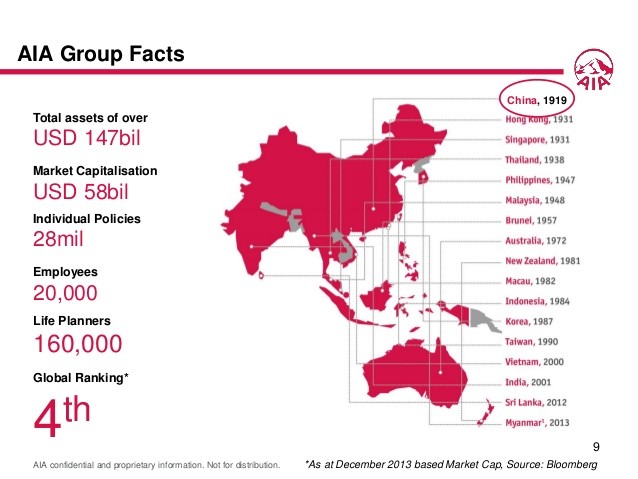As Global Shares Cap Quarterly Slide Bloomberg Business
Post on: 11 Апрель, 2015 No Comment

Demonstrators gather near the central government offices in the business district of Admiralty in Hong Kong, China, on Sept. 29, 2014. Photographer: Lam Yik Fei/Bloomberg
Sept. 30 (Bloomberg) — U.S. stocks fell, with global equities capping the worst quarterly drop since 2012, as energy producers sank with the price of oil. The dollar extended a four-year high, while metals from copper to silver tumbled.
The Standard & Poor’s 500 Index lost 0.3 percent by 4 p.m. in New York, trimming a seventh quarterly gain. The Bloomberg Dollar Spot Index finished its best quarter in six years on an eight-day rising streak, and the euro had its worst three-month drop since 2010. European stocks capped the longest quarterly rally since 2006. Silver plunged to a four-year low today, while gold ended the three months down 8.4 percent. Sovereign bonds beat corporate debt by the most in three years this quarter.
Energy producers in the S&P 500 fell 1.2 percent today as West Texas Intermediate and Brent crudes capped their biggest quarterly decline in more than two years amid ample supply. The Russell 2000 Index sank 1.5 percent, while EBay Inc. rallied after saying that it will split off its PayPal unit. Inflation in the euro region accelerated in September at a pace less than a quarter of the European Central Bank’s target, fueling speculation officials will boost stimulus when they meet Oct. 2.
“It’s quarter-end, investors are parsing out the economic data and the geopolitical landscape,” Craig Fehr, Canadian market strategist at Edward Jones, said by phone from St. Louis. The firm manages about $800 billion globally. “Investors are trying to digest all of this news and we’re here at the end of the month and end of the quarter so there’s some short-term repositioning in the market.”
World Recap
The MSCI All-Country World Index dropped 2.8 percent in the quarter, as gauges of energy and raw materials companies lost more than 7 percent to drive declines. Portugal, Austria and Greece fared the worst among developed nations, with their benchmark equity indexes tumbling at least 11 percent in the quarter. Germany’s DAX Index sank almost 4 percent. Brazil, Turkey and Russia led declines in emerging markets.
In the U.S. the S&P 500 finished the quarter below its average price for the past 50 days after dropping Sept. 25 to trade below that level for the first time since August.
The equity benchmark tumbled 1.5 percent in September, its worst month since January, with the Federal Reserve on course to end its monthly bond-buying program in October.
Small-cap stocks led declines today, as the Russell 2000 capped a 7.7 percent loss in the July-September period, its worst quarter in three years. The gauge is down 8.8 percent from a high reached July 3.
Tech Rally
The technology-heavy Nasdaq 100 Index jumped 5.2 percent in the three months, its seventh straight advance and longest quarterly rally since 2000.
Data today showed the Conference Board’s consumer confidence index fell to 86 in September from 93.4 a month earlier. A separate report indicated home prices in 20 U.S. cities rose in the year ended in July at the slowest pace in almost two years.
Reports on the manufacturing and services industries are due later this week, followed by the government’s monthly labor data. Alcoa Inc. unofficially kicks off the earnings season when it reports quarterly results Oct. 8.
“There’s just a lot of cross currents out there today,” James W. Gaul, a portfolio manager at Boston Advisors LLC, which oversees about $2.9 billion, said by phone. “With earnings season looming around the corner, there’s not a lot of impetus to move either way. We could just be taking a pause and waiting for the next catalyst to move us either way.”
The Centers for Disease Control confirmed after markets closed that the first case of Ebola had been diagnosed in the U.S.
Dollar, Crude
The Bloomberg Dollar Spot Index rose 0.2 percent in an eighth day of gains, capping a 6.7 percent advance this quarter, its biggest climb since 2008. The euro earlier fell to $1.2571, its lowest level since September 2012. New Zealand’s dollar, known as the kiwi, fared the worst among the dollar’s 16 most-traded peers, losing 11 percent in the quarter.
Crude capped quarterly drops in both New York and London as rising output eased disruption concerns that sent prices rising during the prior three-month period. West Texas Intermediate tumbled 13 percent to $91.52 a barrel on the New York Mercantile Exchange this quarter. Today’s settlement was the lowest since May 1, 2013.
Brent fell $17.69, or 16 percent, at $94.67 a barrel on the London-based ICE Futures Europe exchange over the three-month period. The North Sea oil closed today at its lowest price since June 28, 2012.
‘Well Supplied’
“We are going to continue to see lower prices as we go forward,” said Tariq Zahir, a New York-based commodity fund manager at Tyche Capital Advisors. “Fundamentally we are just very well supplied. The dollar continues to get stronger and it’s adding pressure to oil.”
In Europe, the inflation data fueled bets that the ECB would increase stimulus in an effort to fend off deflation when policy makers next meet. The Stoxx Europe 600 jumped 0.6 percent today, pushing the gauge to a 0.4 percent advance this quarter, its fifth straight gain. That’s the longest rally since 2006.
Spanish and Italian government bonds rose today amid weak inflation, preserving the value of payments on fixed-income securities. German bunds were little changed. Greece’s 10-year yields surged to a four-month high.
“The ECB has done a lot already to stimulate economic activity in Europe,” Teis Knuthsen, chief investment officer at Saxo Bank A/S’s private-banking unit, said by phone from Hellerup, Denmark. “The most important consequence of the ECB’s measures has been the euro’s decline. You can’t underestimate how beneficial that will be for companies in Europe.”
Treasury Yields
Ten-year U.S. Treasury yields rose one basis point, or 0.01 percentage point, to 2.49 percent today, with rates down four basis points in the quarter for a third straight decline. Yields are up 15 basis points in September.
U.S. equities sank in early trading while European shares pared gains on prospects Russia’s central bank is weighing the introduction of temporary capital controls, according to two officials with direct knowledge of the matter. The central bank denied the speculation, while the Finance Ministry isn’t discussing such measures, a spokeswoman said.

Russia’s Micex Index added 0.2 percent, paring earlier gains after the report of possible capital controls. The index sank 4.4 percent in the quarter.
Ruble Rout
The ruble, posting its worst quarter since 2009, weakened beyond the 44.40 level versus the central bank’s basket of dollars and euros, the threshold at which policy makers have said they would intervene to prop up the currency.
“There’s been some stories going around about Russia freezing U.S. assets and this news seems to be adding fuel to that speculation,” Matt Maley, an equity strategist at Miller Tabak & Co LLC in Newton, Massachusetts, said in a phone interview. “Some companies have a decent amount of assets over there and and it could definitely have an impact.”
The MSCI Emerging Markets Index sank 0.4 percent, delivering the gauge a 7.6 percent slide in September, the most since May 2012. Data on Chinese manufacturing was below preliminary readings and pro-democracy protests in Hong Kong continued. The index had risen for seven straight months.
The gauge of developing-nation stocks fell 4.3 percent this quarter, its steepest loss since the second three months of 2013.
Commodity Slump
The Bloomberg Commodity Index sank 1.4 percent today, the most since June 2013. The gauge has plunged 12 percent this quarter, its worst three months since the final quarter of 2008.
Gold futures for December delivery slid 0.6 percent to settle at $1,211.60 an ounce on the Comex after touching $1,204.30, the lowest since Jan. 2. Prices fell 8.4 percent this quarter.
Jeffrey Currie, the head of commodities research at New York-based Goldman Sachs Group Inc. says the worst isn’t over for gold, forecasting prices at $1,050 by year-end. Societe Generale SA is also expecting more losses.
Silver futures dropped 2.9 percent to $17.057 an ounce. The metal touched $16.85, the lowest since March 2010, and lost 19 percent this quarter, the most since mid-2013.
Copper futures declined to the lowest since May on demand concerns after a manufacturing gauge fell from an initial reading in China, the biggest user of the metal. Copper settled at $3.0075 a pound, capping a 4.8 percent slide this month, the most since March.
To contact the reporters on this story: Callie Bost in New York at cbost2@bloomberg.net ; Jeremy Herron in New York at jherron8@bloomberg.net
To contact the editors responsible for this story: Michael P. Regan at mregan12@bloomberg.net Jeremy Herron, Emma O’Brien














